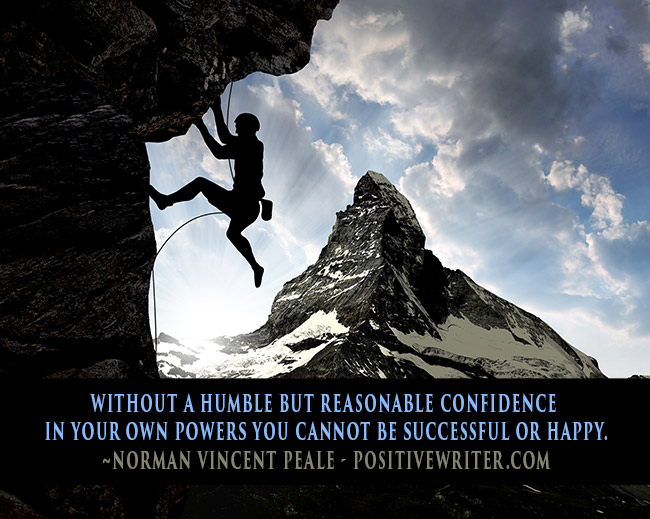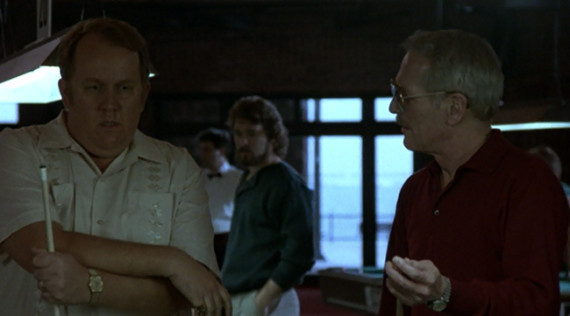In The Color of Money, the only movie for which Paul Newman ever won a Best Actor Oscar, there’s a scene near the end where he’s playing against the once infamous real-life pool player Steve “The Miz” Mizerack, and after Steve loses to Paul, Steve says, “I didn’t deserve that.”
And without the slightest hesitation, Paul’s character, Fast Eddie Felson, replies, “Yes, you did.”
The reason Fast Eddie said, “Yes, you did.” is the same reason too many writers the world over self-destruct, fail and quit writing.

When I used to coach and teach pool-billiards the first thing I would teach is the “mental game.” The mental game is where players win or lose regardless of how great their technical skills might be.
According to Dr. Jorge Valverde, the renowned world leading sports psychologist and creator of the Valverde System, the percentage of the mental game is 80% to 90%. (Source)
In sports it’s actually quite easy to demonstrate how decisive the mental game is, especially in pool. In order to demonstrate to students the mental game in action I would take them to pool tournaments to watch and, more importantly, listen to the players before, during, and after matches.
Pool players are notorious for the way they vocally express themselves at tournaments. The difference between the winners and losers is glaring, in that those who go on to reach the higher brackets are typically the players who are expressing positive, can-do, winning words.
On the other hand, it is even easier to identify those who most likely will not advance, because they are continuously vocalizing every reason under the sun why they are not playing well and why other players have advantages or, even worse, why “something” is holding them back from excelling. After losing matches, these are the players you might hear say, “I didn’t deserve that.”
Yes, they did. Because they self-destructed, mentally quit on themselves, and in a negative state of mind they squandered any and all opportunities to win. It’s what Steve Mizerack characterized so well in The Color of Money. A losing mentality.
Seems pretty cut and dry, doesn’t it?
And, you know what? It is.
Technical proficiency and talent are important, but are only worth 10% to 20% of the game.
If a player wants to play her best and win, she must work on building her self-confidence, overcome her fears and doubts, and ultimately, she must cultivate an overall winning attitude.
She doesn’t have to be perfect, but she must accept that she has a chance to win every time she competes.
I’m not talking about being a jerk and stating you’re the best thing since sliced bread. No. That’s grandiose BS. And doesn’t work.
Norman Vincent Peale said it best in one of my all-time favorite quotes:
Without a humble but reasonable confidence in your own powers you cannot be successful or happy.
Cultivating a confident, honest, yet humble, winning attitude takes work.
In fact, I’d go so far as to say that working on one’s attitude is the main reason to compete, because it forces you to look within and improve. Just as writing does.
Writers must work on their mental game, too.
Writers must work on their mental game.
You don’t need to play sports in order to work on the “mental game” and you don’t need another person to compete.
As a writer, your “competitor” is yourself – who you were yesterday, who you are today, and who you will be tomorrow.
The goal should be to improve every day as a writer and as a person.
Just as pool players are notorious for the way they express themselves at tournaments, writers are notorious for being stuck in doubt, beaten by their own inner negative self-talk, and unable to write anything they consider worth diddly – friggn’ – squat.
(You can tell I’ve been there.)
But, you know what? It comes with the territory and is absolutely normal.
Even so, as normal as it may be, negative self-talk is not helpful and only serves to set you up to give up and quit, or create work you’re not proud of.
For those of us chastising ourselves like we deserve nothing better as writers than bread and water, muttering the dreadful words, “I don’t deserve this.” Fast Eddie Felson would have blunt words for us.
“Yes, you do.”
It’s the reason writers the world over self-destruct, fail and quit.
Dust to dust. Ashes to ashes.
A scene from The Color of Money burned into my memory is the look on Steve Mizerak’s face after Paul Newman said those honest, revealing words. No wonder the movie was nominated for an academy award for best writing. The story was not as much about pool as it was about human nature.
Pool excellence is *not* about excellent pool.
~Eddie Felson (Paul Newman), The Color of Money

Color of Money – Steve Mizerak & Paul Newman
The same could be said of writing.
Writing excellence is *not* about excellent writing.
– Tweet that and you may confuse a few people, but there will be those who get it.
5 Tips on How to Thrive as a Writer
What if writing isn’t all that different from sports? In that the technical aspects (punctuation, grammar and syntax etc…) get most of the attention, but it’s the mental game that matters most.
After all, if you doubt your ability to write a novel, or to write a good novel, or to write a novel others will want to read (see, this can go on all day), it doesn’t matter how technically proficient you are at writing if you don’t trust your ability to write words that matter.
1) Be mindful of what you say to yourself about yourself.
Writing is for the most part a solitary job and it’s easy to get caught up and overwhelmed by negative thoughts without even realizing it until it is too late. When the negative, self-critical voice comes be aware of it and immediately tell it to be quiet, because you’re busy writing. And continue writing.
2) Make a list of your accomplishments.
The negative voice in your head is a master at making you aware of your failures, both the real and the imagined, and if we’re not careful it’s easy to fall into the trap of believing we’ve never accomplished anything.
When the self-sabotaging voice tries to convince you that you are worthless and couldn’t write an opening paragraph to save your life, read your list of accomplishments, and then say aloud with conviction, “I am well able. I am a writer.”
3) Make a list of positive affirmations.
I used to underestimate the power of positive affirmations because I thought they were silly. Well, I eventually learned the reason this is such a popular suggestion is because positive affirmations work!
Make a list of affirmations you believe in (here’s a list to get you started), put a few of the most powerful on little pieces of paper and put them in places you will constantly see them. And when you see them, say them aloud.
4) Stop complaining.
We all do it. Most of the time we don’t even realize it.
Examples are, “My draft is crap. No. It’s worse. Calling it crap is too good for it.” – “I can’t come up with any ideas. I’m an idiot. Other people come up with great ideas easily.” – “I just wasted another day staring at the screen writing nothing but gibberish. I’m worthless. I’m nothing. And, I’m ugly, too!”
Okay folks, calm down. The end of the world isn’t upon us and you’re a lot better looking than you think you are, and you’re a much better writer than you think you are.
Besides: Scientific research from Stanford’s medical school revealed that exposure to just 30 minutes of – complaining – every day can physically damage the brain. It damages the neurons in the hippocampus, the part of the brain used for problem solving and cognitive functioning. (Source)
5) Be YOU!
You are uniquely you. Embrace yourself as you are. Stop comparing yourself to others. When we compare ourselves to others we come up short 99% of the time. Which only serves to make us feel worse about ourselves.
And you know why we come up short? Because our inner critic is always looking for ways to substantiate itself and finding other people who are “apparently” doing better than you are makes it easy.
Stop comparing yourself to others and be the only awesome person you are meant to be, you!
You Are Enough
You’re better than you think you are. You have it in you to write a masterpiece. And when you finish your first masterpiece, you’ll write another and then another. It doesn’t matter how much you’ve already written, your best is still to come.
But if you’re stuck in Writer’s Doubt and allow the harshest critic of all, your own internal negative voice, to kill your enthusiasm – you’ll never write the words that deserve to be written by you.
Repeat after me: “I write stories that matter.”
Yes, you do.
Now go and write something brilliant!
And share a link to, and tell us a little about, your latest work, in the comments.
